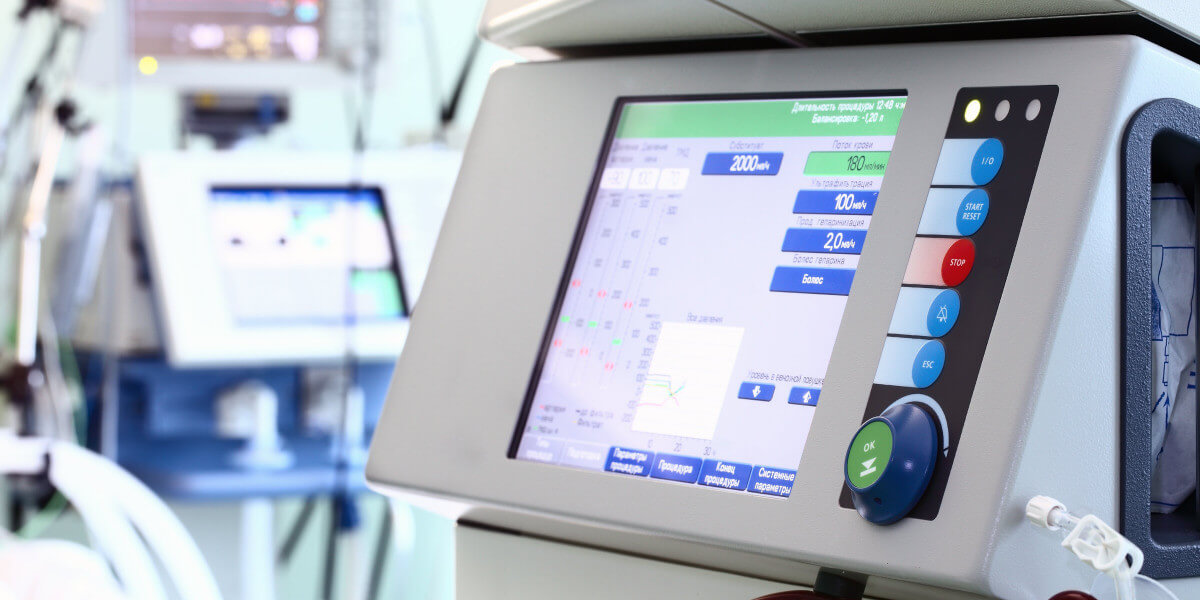Malaysia is expected to launch detailed halal certification for medical devices in January, an innovative regulatory move that could make the country a world leader in the segment.
The new Malaysian system will be available for certification of a wide range of medical devices helping diagnose, treat and improve patients’ lives, such as pacemakers, patient monitors, dialysis systems or gloves.
The Malaysian state published a halal medical device standard in September 2019, known as MS2636, but the halal division of the Malaysian Islamic Development Department (JAKIM) agency has been enhancing their online system and staff since the new scheme for halal medical devices must comply with other requirements, Johari Ab Latiff, senior assistant director at JAKIM’s Malaysia Halal Council Secretariat, told Salaam Gateway.
Now JAKIM is almost ready to start certifying halal medical technology (medtech). In order to be considered halal under the Malaysian system, products should be made from materials or ingredients allowed under Sharia law - not containing or be from processes using alcohol, parts of humans or certain animals, such as pork, and should be manufactured separately from production systems making non-halal medical devices, according to Latiff.
In their 2019 paper ‘Issues and Challenges in implementation of halal medical device certification in Malaysia,’ Johari Ab Latiff and Khairunnisa Che Omar, the then assistant director of JAKIM’s halal management division, mentioned the lack of a “clear scope for halal medical devices” and simultaneously “high demand and requests for halal certification from the industry and importing countries.”
There are many benefits of getting the halal certification because the market is growing, not only in Malaysia, but in the Middle East, Latiff said. However, the certification system would be “quite tough” for manufacturers who are already established with non-halal products, because they have to separate facilities between halal and non-halal, he added. Also, sourcing halal certified raw materials for medical devices may be challenging for many industries where suppliers have not applied for halal certification, said Omar.
Given that focused medtech certification is just emerging, Omar said sales estimates of the halal medical devices industry have yet to emerge. He suggested turnover might have doubled during the COVID-19 pandemic, due to rising demand for test kits and lockdowns, which encouraged consumers to buy at-home medical devices.
The Malaysian Investment Development Authority (MIDA) has been promoting the country’s medtech sector, dubbing it “the leading medical device manufacturing hub in the East, competing against the likes of mature hubs such as Puerto Rico, Costa Rica and Ireland.”
Examples of Malaysian medtech innovation include a halal granular synthetic bone graft GranuMaS, made by Selangor-based GranuLab. GranuLab is a subsidiary of the government-owned SIRIM Bhd (once known as the Standard and Industrial Research Institute of Malaysia).
Another halal medtech line is sterile surgical sutures made from nylon, such as Vesti, created by Worldwide Medivest Sdn Bhd, which is also based in Selangor, next to the capital Kuala Lumpur. Major international brands are also getting into the halal healthcare space – Oral-B sells halal-certified dental floss in Malaysia.
Omar said the regulator would be working on certification applications for replacement bones made from titanium. Latiff and Omar said some medtech products have secured halal certification under existing pharmaceutical product or goods product schemes, for instance humidifiers and surgical mesh.
The global medtech market is projected to grow from $455 billion in 2021 to $658 billion in 2028, due to a rising prevalence of chronic disorders, and growing awareness among consumers, according to Fortune Business Insights.
The 2020/2021 State of the Global Islamic Economy Report by DinarStandard believes growth is assured given established medtech players “are entering the halal pharmaceutical and medical devices sector.”
Last year, Sweden’s Bactiguard acquired Vigilenz, a Malaysian manufacturer of medical devices and consumables.
Malaysia manufacturers are well placed to succeed given neighbouring Indonesia, the largest Muslim-majority country, has made voluntary halal certification of medical devices mandatory from 2026 until 2034, depending on the classes of products. A February regulation, which extended Indonesia’s two-year-old Halal Product Law to medical devices, requires medical devices to be certified free of animal materials – whose consumption is forbidden by Islamic law – from 2026.
May Ng, CEO at the Singapore-based ARQon group (Asia Regulatory & Quality Consultancy for Medical Device and Drugs) said that besides this requirement, the demand for halal medical devices coming from patients will generate exponential growth.
Halal certification in Indonesia may enhance the product value of single-use hospital consumables. Also, devices for cardiology, obstetrician-gynaecologist and orthopaedics are already a major market that will continue to grow, fuelled by demand from an Indonesian government health insurance programme launched in 2014, Ng added.
But supply chain regulation might be tough to manage after halal rules come in: “It is not easy for a country to control medical devices and after that to control additional requirements,” said Ng.
Elsewhere in the world, halal regulatory controls are less rigorous. Nada Al Sayegh, consultant and advisor engineering safety at the National Health Regulatory Authority (NHRA) of Bahrain, told Salaam Gateway: “We do not request halal certificates for medical devices, but we do verify the ingredients.”
“All medical devices registered and used must be porcine free,” she said. In rare cases, where there are no alternatives, normally limited to the supply of stents (small mesh tubes placed by a catheter into a narrowed coronary artery to enlarge a segment of the artery), and meshes, use of such non-halal items is permitted. But a letter from a surgeon and hospital management that there are no alternatives is required. “The patient is fully aware of this information,” she added.
According to Sayegh, the same procedure applies in other Gulf Cooperation Council countries: Kuwait, Oman, Qatar, Saudi Arabia and the United Arab Emirates. As for the Saudi market, the Saudi Food & Drug Authority (SFDA) confirmed to Salaam Gateway: “There are no halal specifications in medical devices so far.”
© SalaamGateway.com 2021 All Rights Reserved


Andreia Nogueira